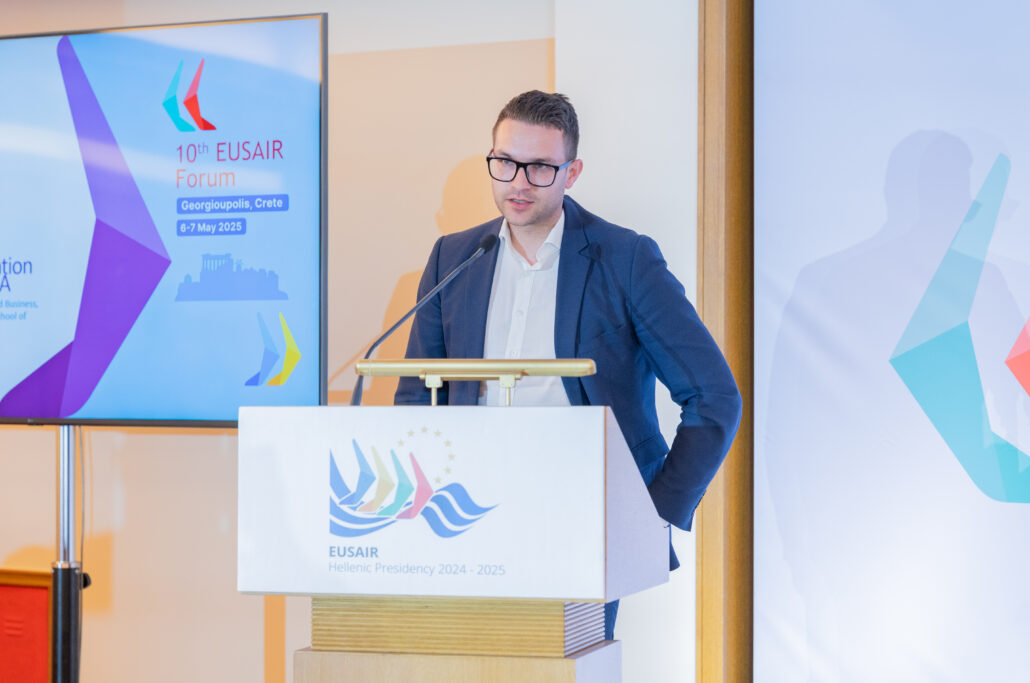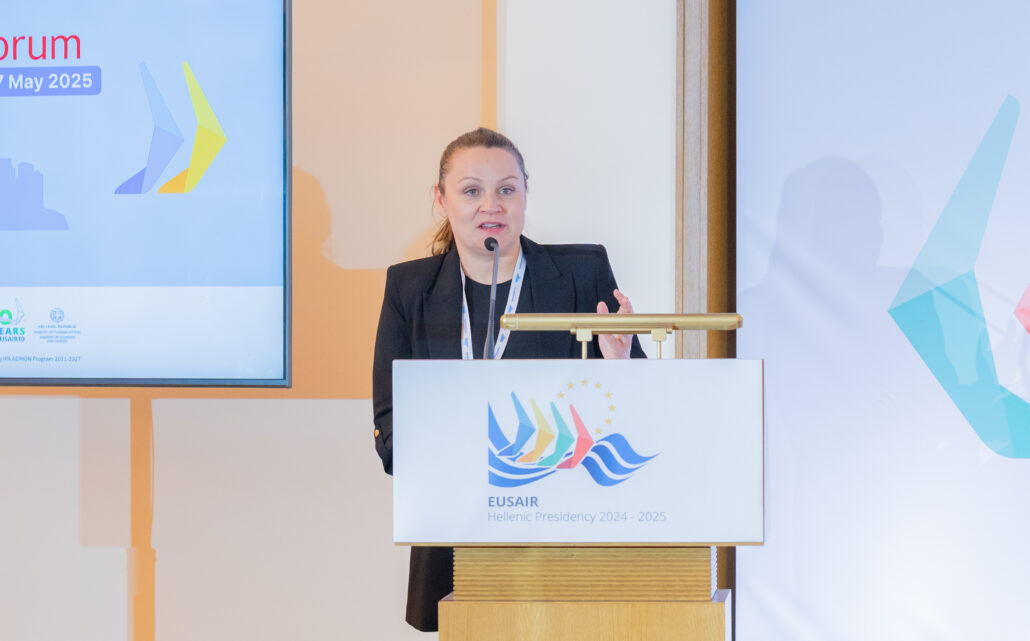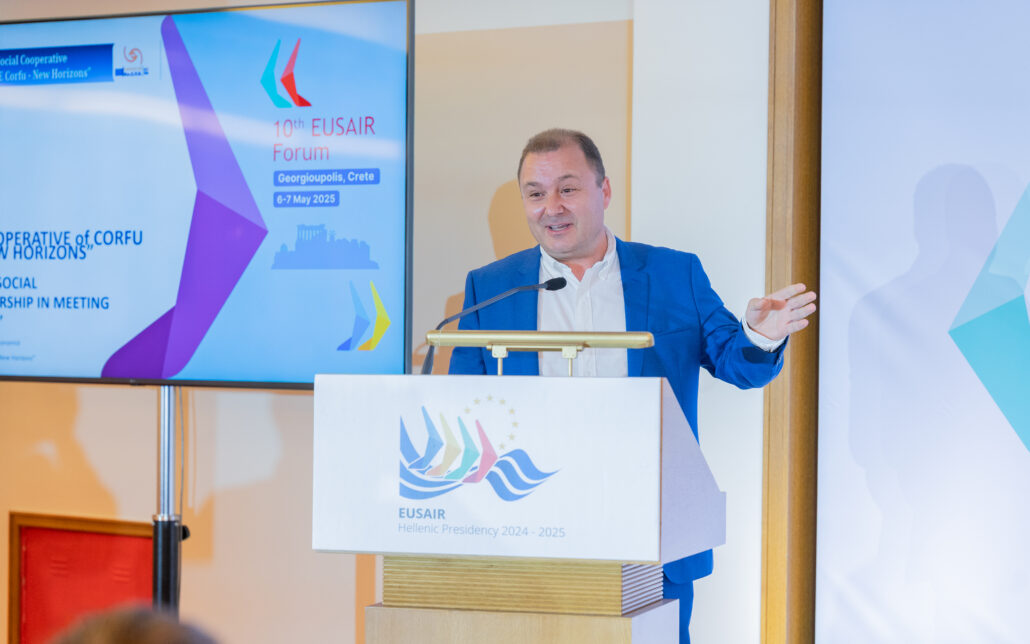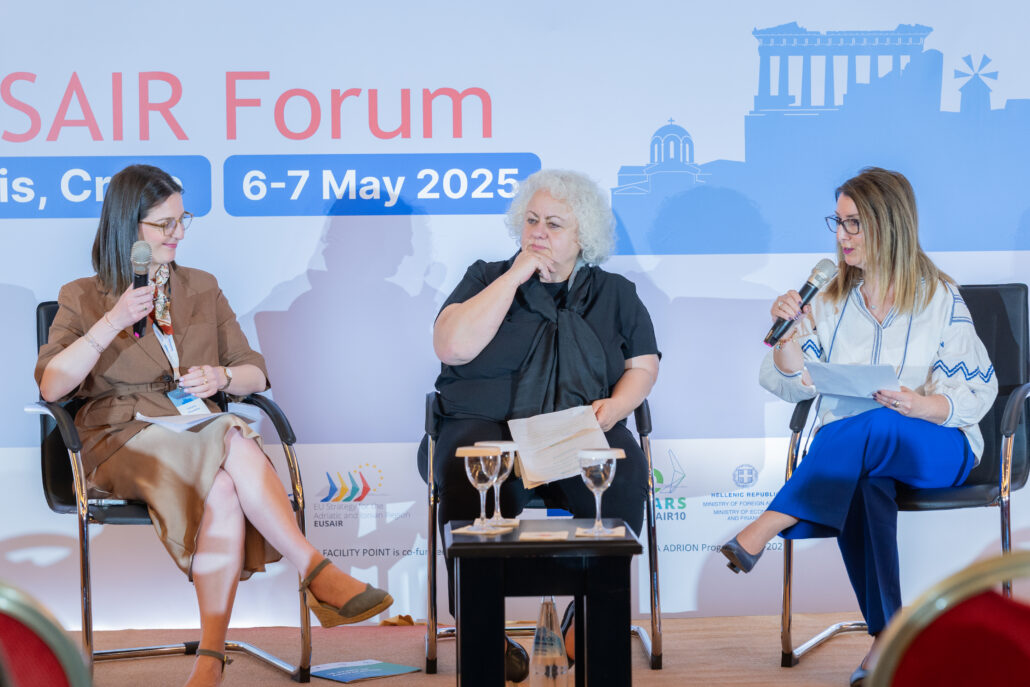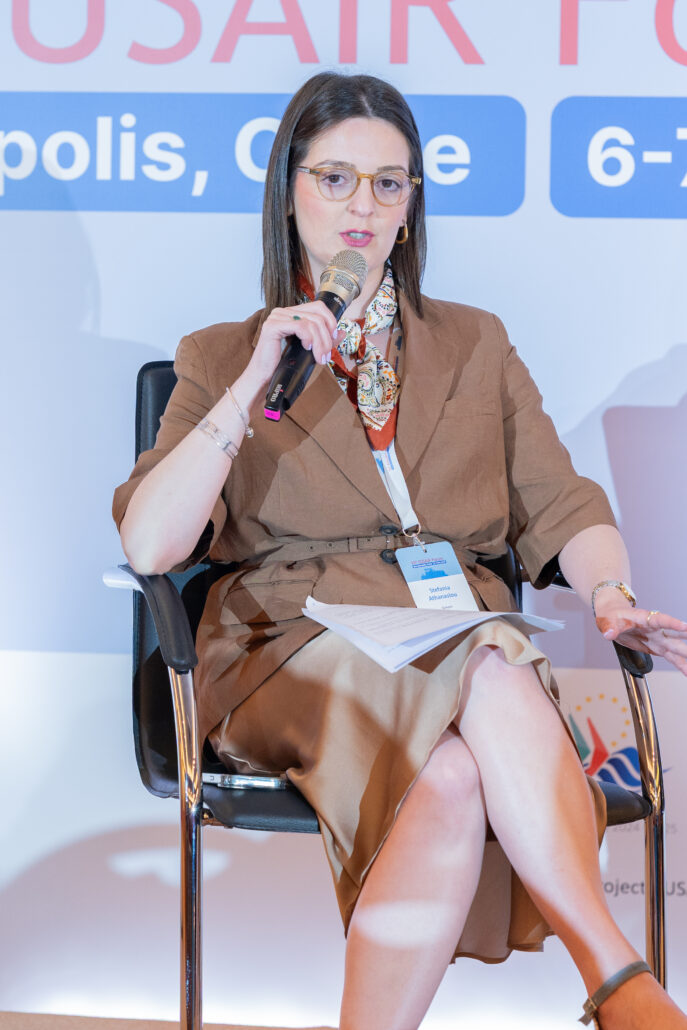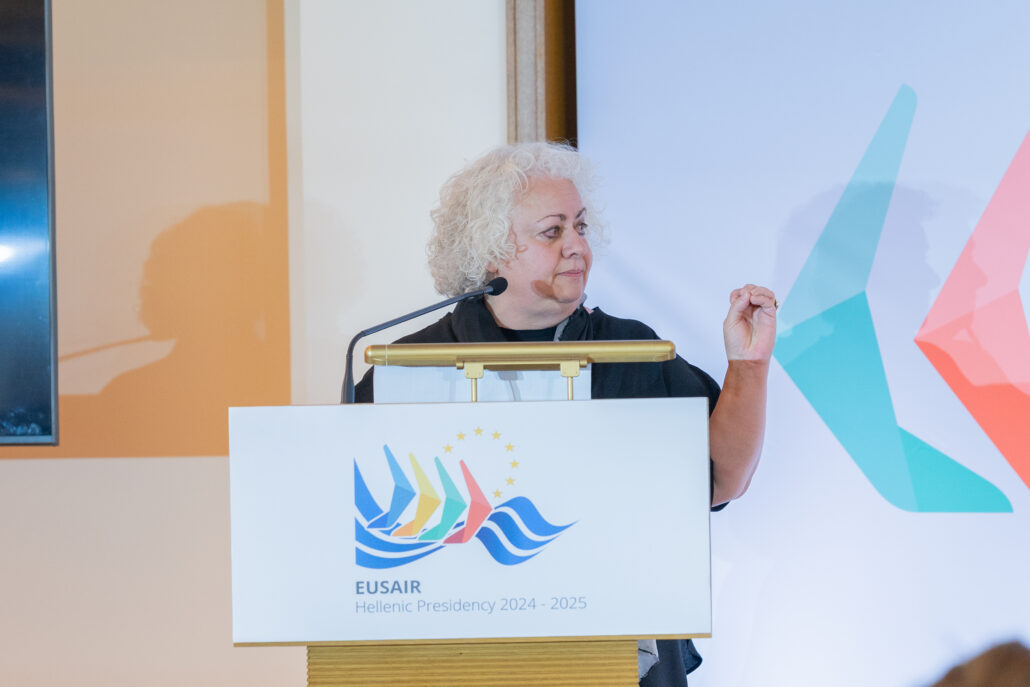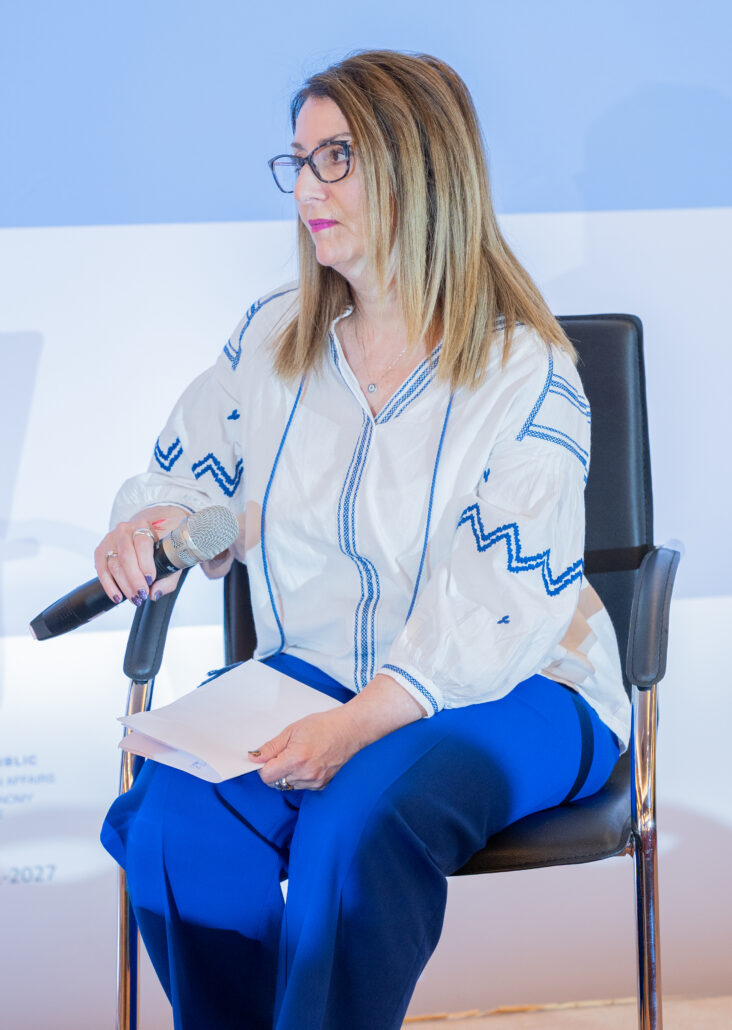10th EUSAIR Annual Forum
Crete, Greece | 6th-7th May 2025The session of Pillar 5 – Enhanced Social Cohesion – of the EU Strategy for the Adriatic and Ionian Region (EUSAIR), held during the 10th EUSAIR Annual Forum in Crete, placed a strong focus on social innovation as an alternative approach to meeting the real needs of citizens and promoting inclusive, community-driven development. This marks one of the most challenging and dynamic priorities within the fifth pillar of the EUSAIR Strategy.
The session titled “Social Innovation as an Alternative Approach to Addressing Citizens’ Needs” brought together European Commission representatives, national authorities, and grassroots social innovators from Slovenia, Croatia, and Greece. The discussion highlighted the potential of social innovation to provide alternative, participatory solutions that strengthen social cohesion and address complex, evolving societal challenges across the Adriatic-Ionian region.
Dunja Šare, coordinator of Pillar 5 from the Croatian Ministry of Labour, Pension System, Family and Social Policy, emphasized that social innovation is now formally embedded in the revised EUSAIR Action Plan, reaffirming the EU’s commitment to making Europe more inclusive and socially resilient.
“Social innovation is a set of practices that attempts to solve the everyday needs of citizens in new, innovative ways. It operates on a bottom-up principle, meaning that ideas come from citizens themselves, thereby contributing to social cooperation and encouraging civic participation,” said Rania Oikonomou from the Greek Ministry of Finance, who moderated the first part of the session. She also stressed the need to increase the visibility of both existing and emerging innovations throughout the region.
Michael Grosse, Team Leader for Social Innovation at the European Commission’s Directorate-General for Employment, Social Affairs and Inclusion (DG EMPL), defined social innovations as “activities that are social in both their ends and means – particularly those which relate to the development and implementation of new ideas that simultaneously meet social needs and foster new relationships and collaborations across public, civil society and private sectors.” He underscored that such innovation is especially valuable when traditional policy mechanisms fall short, and when tailored, localised, and flexible responses are needed.
Marianna Kondylidou from the Centre for Social Innovation in Greece, and representative of the SEED2SCALE project consortium, pointed out the urgency of establishing national competence centres in each Adriatic-Ionian country to systematize and scale social innovation efforts. She also highlighted a growing disconnect between policy frameworks and citizens' lived realities, noting that many citizens no longer identify as participants in public life, but rather as passive consumers — a trend social innovation seeks to reverse.
Several regional best-practice projects were showcased during the session.
Simon Colnar from Slovenia presented the SI4CARE project, which promotes integrated care for the ageing population through a multi-stakeholder, bottom-up approach that empowers communities and caregivers.
Ivan Božić of Croatia's Humana Nova, a social cooperative renowned across Europe, illustrated how sustainable product creation can also advance social inclusion, ecological awareness, and local engagement.
Thanasis Papavlasopoulos from KOISPE Corfu Social Cooperative in Greece shared a case of social entrepreneurship focused on job creation, mental health, and sustainable economic models, demonstrating the value of inclusive practices for marginalized groups.
The session concluded by underlining the essential role of policy support, cross-sector cooperation, and integration of digital and green transitions as enablers of innovation. Participants agreed that social innovation can act as a powerful driver for resilience and inclusion, especially when institutional capacity is combined with grassroots initiative. The rich exchange of experiences across countries reaffirmed a macro-regional commitment to co-creating a fairer, more inclusive Adriatic-Ionian region, one where citizens are not just beneficiaries but active agents of change.





